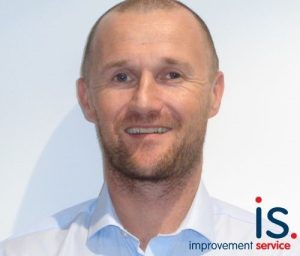
Private and Public sector unite to unlock the Power of Location Data
In our March webinar we heard from Simon Roberts, Data and Engagement Manager at the Improvement Service and Arun Gopinath, CEO of Vahanomy talking about their partnership formulated through an introduction by Location Data Scotland and where they saw ‘The Power of Location Data’.
The Improvement Service is owned by the 32 Scottish Local Authorities, COSLA and SOLACE and one of their focuses is to create a more consistent and comprehensive evidence base for decision making by enabling better access and usability of local government data.
The Spatial Hub is the Improvement Service’s flexible and scalable, online platform that provides standardised access to Scottish local authority data. A key objective of the platform is to stimulate innovation and improve productivity for organisations across Scotland. The platform addresses the challenges that organisations face around accessing public sector data.
Local government data custodians are invited to provide data sets to the Spatial Hub, which are then transformed and published into more harmonised national datasets which can be accessed by any authorised organisation or user. Organisations such as EDINA at the University of Edinburgh are sharing the Spatial Hub data via their DigiMap service with most academic and research institutions across the UK.
The Improvement Service has been working with Vahanomy Limited, an Edinburgh based start-up developing innovative artificial intelligence data driven B2B solutions to enable the accelerated rollout of electric vehicles (EV) charging infrastructure globally. Through an exploratory licence for the Spatial Hub, Vahanomy can access local authority data sets that have been critical to the development and testing of their innovative technology.
 Arun said:
Arun said:
When we started out, we encountered lots of challenges accessing data around where electric charging points could be located including:
- sourcing accurate, current, standardised, easy to handle and affordable data,
- developing predictive models to use this data to pinpoint the electric charging points.
Through Location Data Scotland (LDS) we have been introduced to a number of key data suppliers like the Improvement Service, which has been important for us to access quality data. We also were able to connect with Ordnance Survey, Scottish Government, Registers of Scotland and the Geospatial Commission. As a start-up with limited resources, it is difficult to connect with the right contacts. Ashley at Location Data Scotland has a fantastic network of connections and she easily started opening doors for us to the right people across the location data domain.
 The Spatial Hub has provided Vahanomy with access to 40 spatial datasets through their exploratory licence.
The Spatial Hub has provided Vahanomy with access to 40 spatial datasets through their exploratory licence.
Simon Roberts commented:
The Spatial Hub could become a sort of ‘one-stop shop’ for Scotland’s local government and public sector spatial data if this was deemed necessary and we are working with other parts of Government such as health organisations and SEPA to evolve the data sets we currently support. Companies who are interested in accessing or supplying this data should get in touch with us via our website.
A list of available data sets from across the UK can be found here.
Available Data Sources
Public/Private Sector Disconnect
There is a massive question around how we bring together the public and private sectors to unlock the data being generated across the public sector? Lots of best practice is already being created in the private sector as organisations find solutions to similar data challenges. To address the issue and find solutions, first we need to understand the challenges. And bring together suppliers to share their insights and knowledge to try and solve the challenges.
 Project Manager for Location Data Scotland Ashley Stewart said:
Project Manager for Location Data Scotland Ashley Stewart said:
Our role in Location Data Scotland is to bring together an inclusive community of entrepreneurs, industry, third sector, academia, and public sector to collaborate, drive innovation, create opportunities and efficiencies and unlock the value in location data across multiple industries and sectors. We have a key role to play in helping address the public/private sector disconnect and our strong community of members could be the conduit to unearthing both public and private sector challenges and finding solutions.
